
The second AQUA-LIT’s Learning Lab took place on 26th November 2019 at the InnovOcean site (VLIZ) in Ostend, and it was focused on encouraging discussions, knowledge exchange and brain-storming on solutions and methodology for tackling marine litter in the North Sea region.
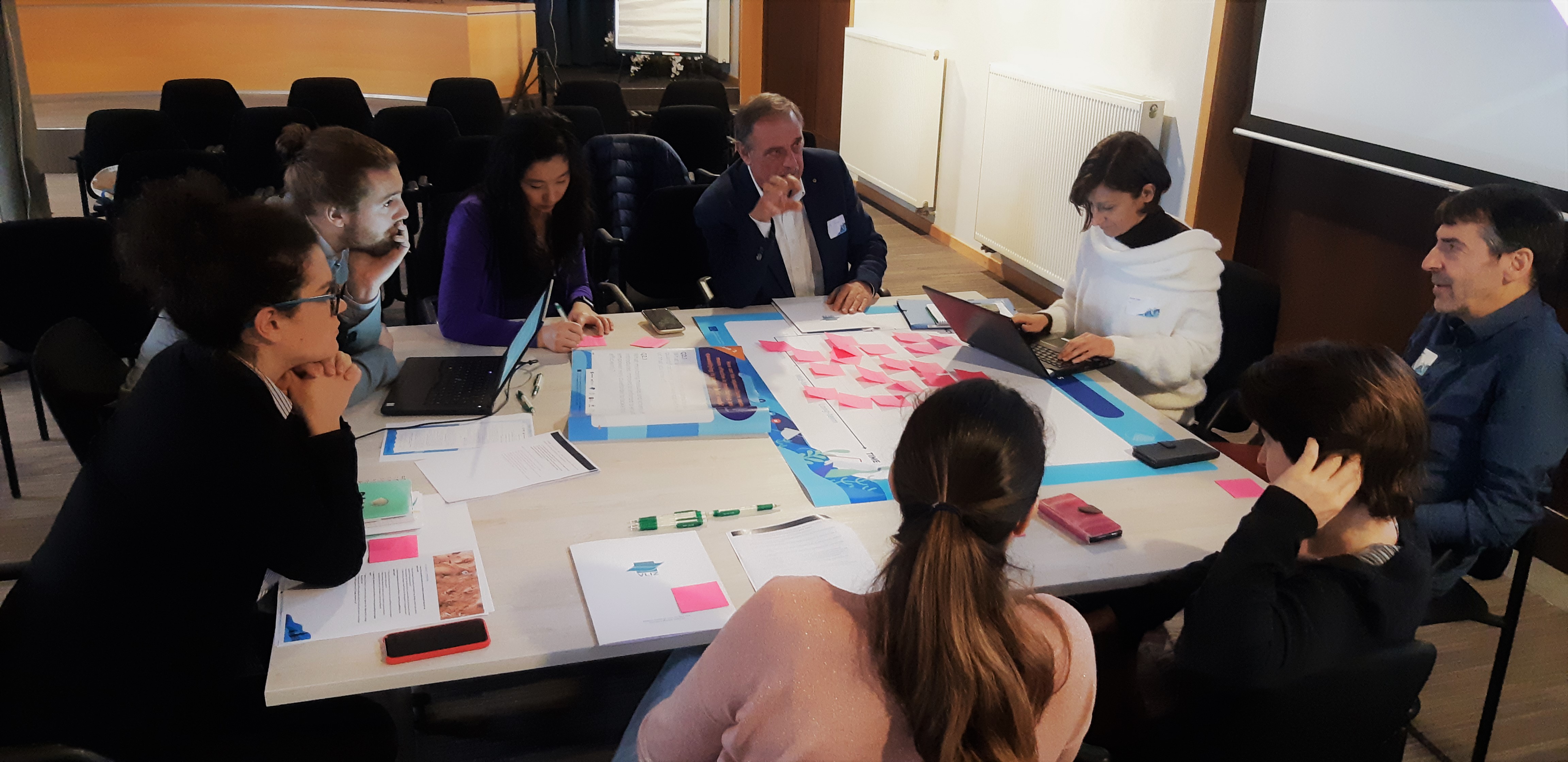
This interactive workshop assembled 15 stakeholders, and 6 members of the organising team, from the aquaculture sector in the North Sea region. The stakeholder group consisted of aquaculture farmers (fish, mussels and seaweed), aquaculture gear producers, researchers, start-ups, national authorities, etc.
The participatory method used during the Learning lab encouraged knowledge sharing, co-creation and development of mutually valued and acceptable tools from three perspectives:
- Prevention and reduction of litter from the aquaculture sector;
- Monitoring and quantification of litter from the aquaculture sector;
- Removal and recycling of litter from the aquaculture sector;
The crowd was divided into groups and asked two questions to open the discussions:
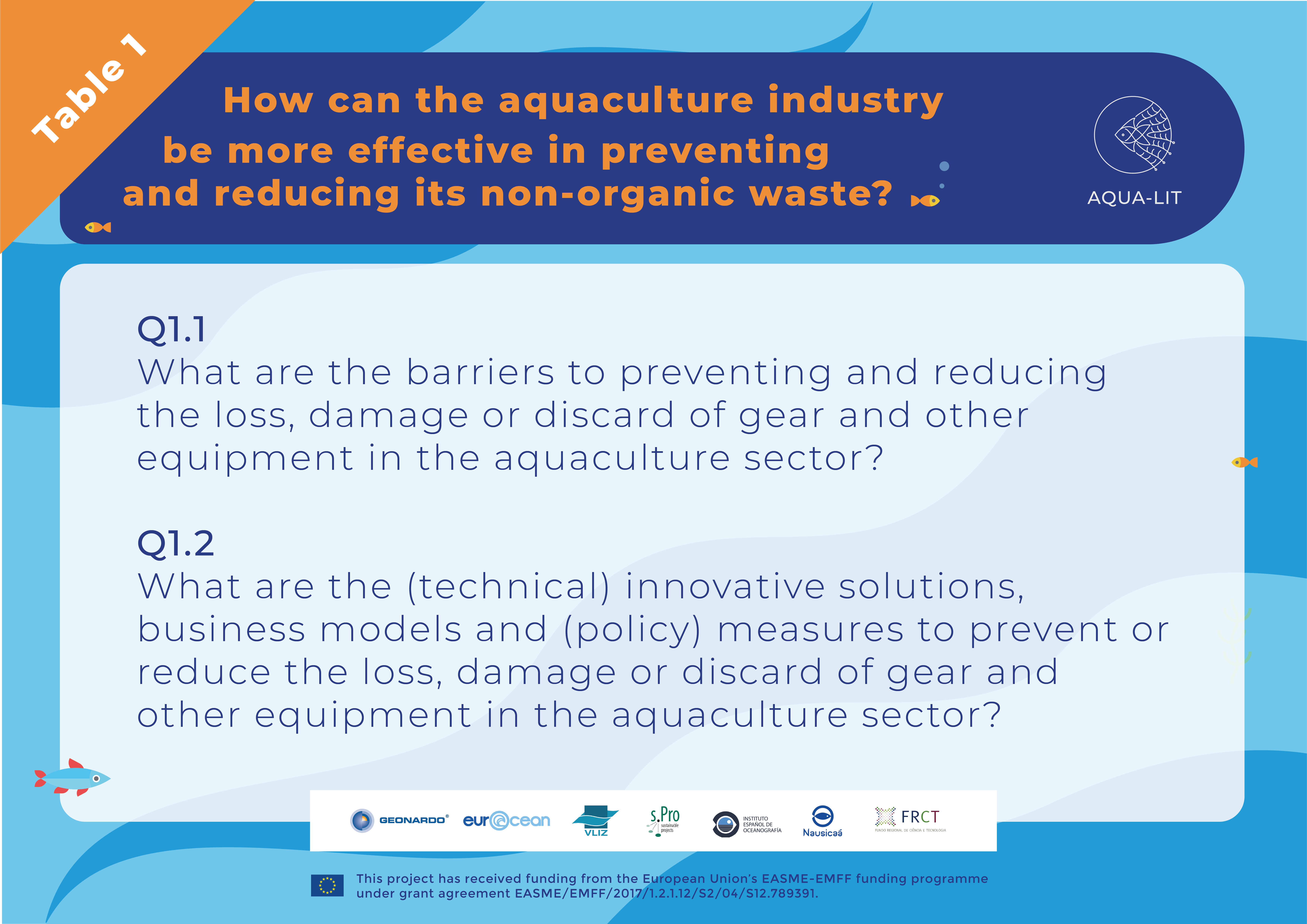
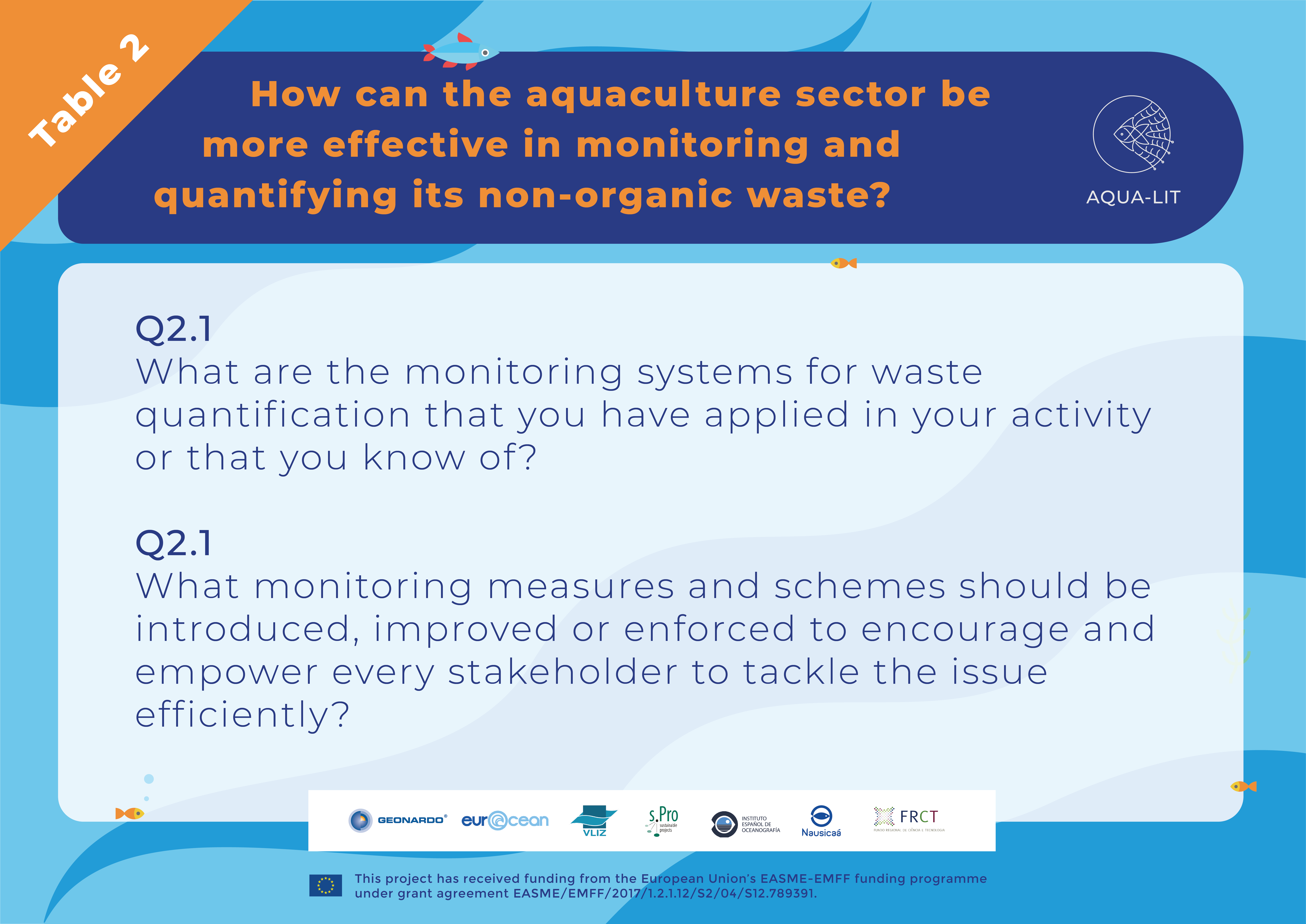
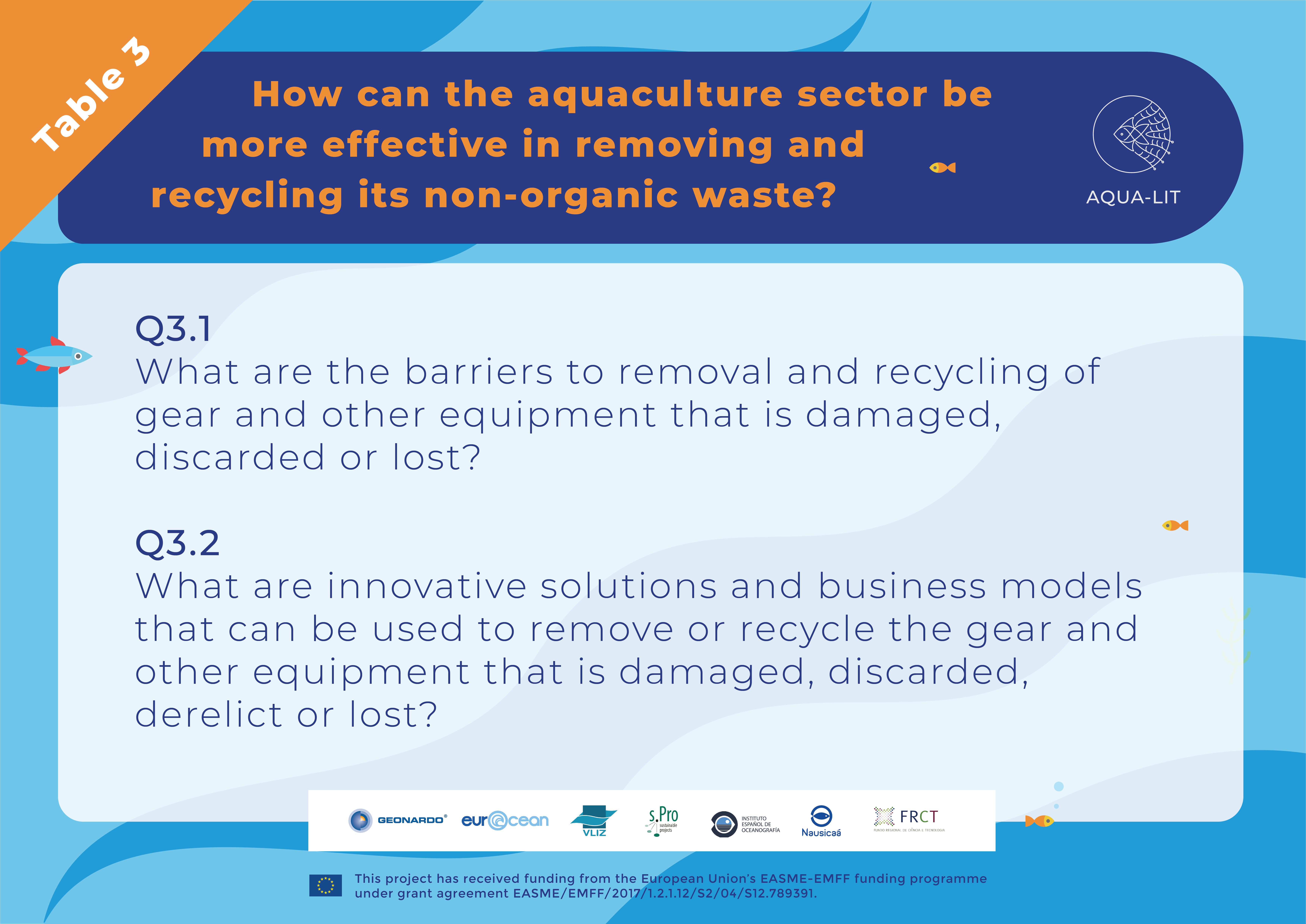
The solutions proposed ranged from incentives and taxes to the use of environmentally-friendly gear alternatives. To prevent and reduce litter from the aquaculture sector, stakeholders stated that "one should go with the sea and not against it." There is a need to adapt to the rough conditions offshore with the related aspects of how to make installations sea-proofed and apply multi-use approaches.
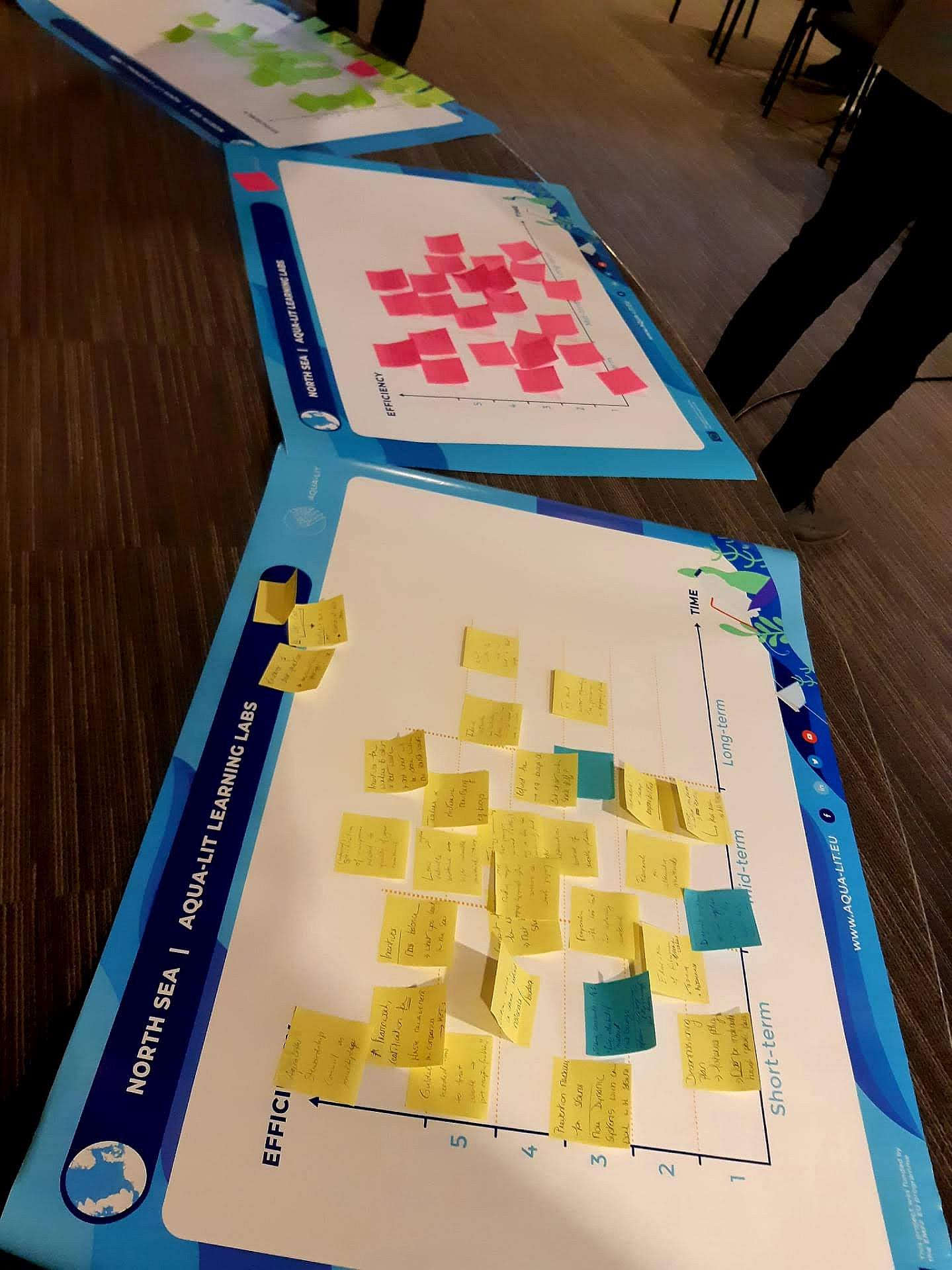
Further, lost aquaculture related litter should be monitored and quantified at its source. Next to that, the lost items should be reported to the appropriate authorities and related to the concession.
The waste policy and management (collection and depositing) on concessions should be improved, clarified and specified. In addition, collaborations between different offshore companies (aquaculture farms, wind farms, etc.) could facilitate the monitoring, removal and recycling of the general waste and lost items.
Professional collection systems (vessels and harbour collection points) should be put in place and economic incentives should be introduced for offshore workers.
During the coffee break, Francis Kerckhof of the Royal Belgian Institute of Natural Sciences (RBINS) gave a demonstration on the different aquaculture litter items that end up on the Belgian shore. The majority of the recovered objects originate from the shellfish aquaculture activities in the English Channel.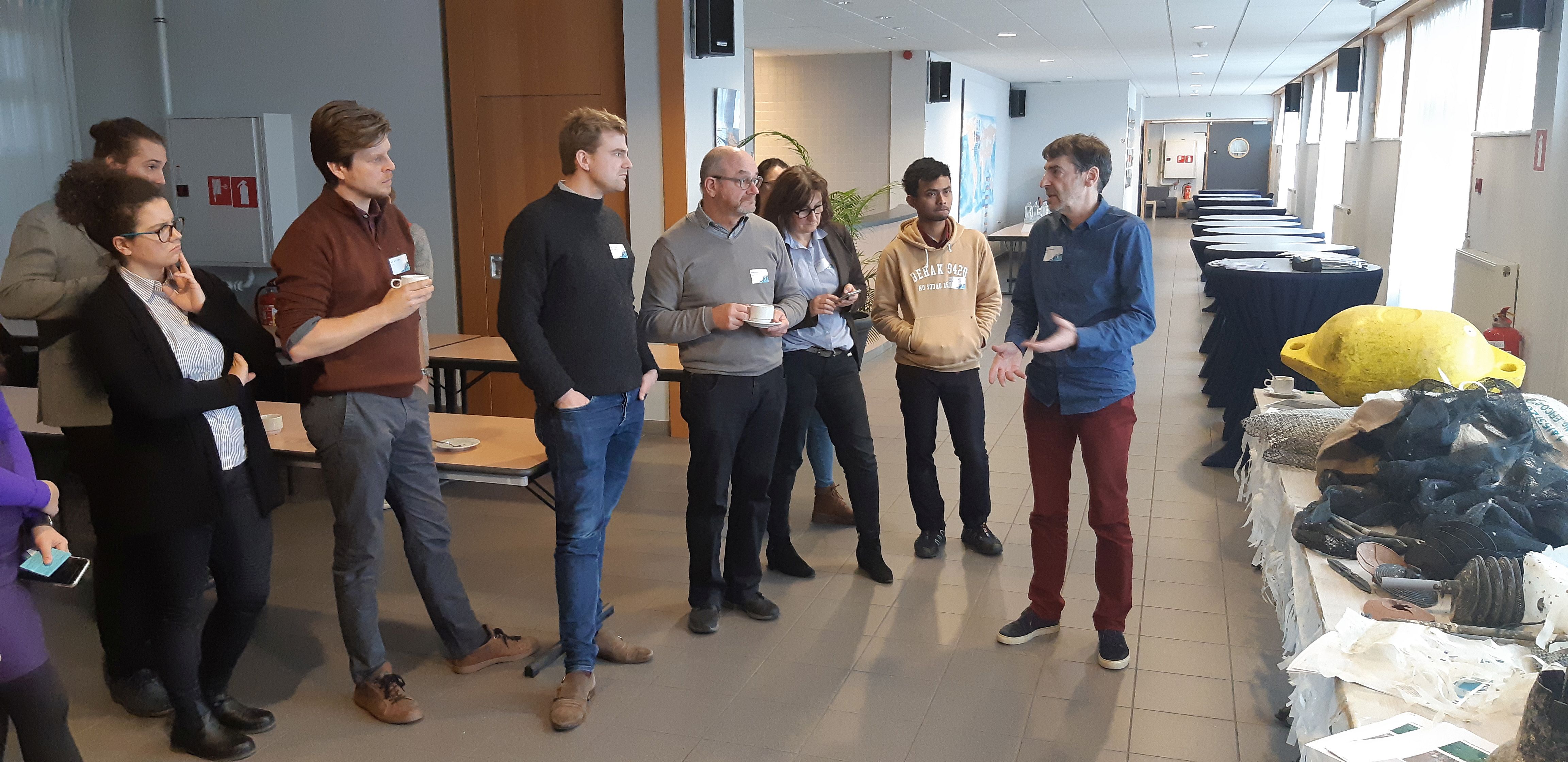
The next LL will be focus on the Mediterranean region and will be held in Valencia (Spain) on 4th of February 2020.

Agenda
Click to further check out the programme of the day.
State of Play
You can download here the outline of the North Sea Learning Lab topic to prepare for the workshop:

Materials
PRESENTATIONS
You can also download the presentations used during the Learning Lab.
PHOTOS
If you are interested in seeing more photos of the event, you can check them out here.

Announcement of the North Sea Learning Lab
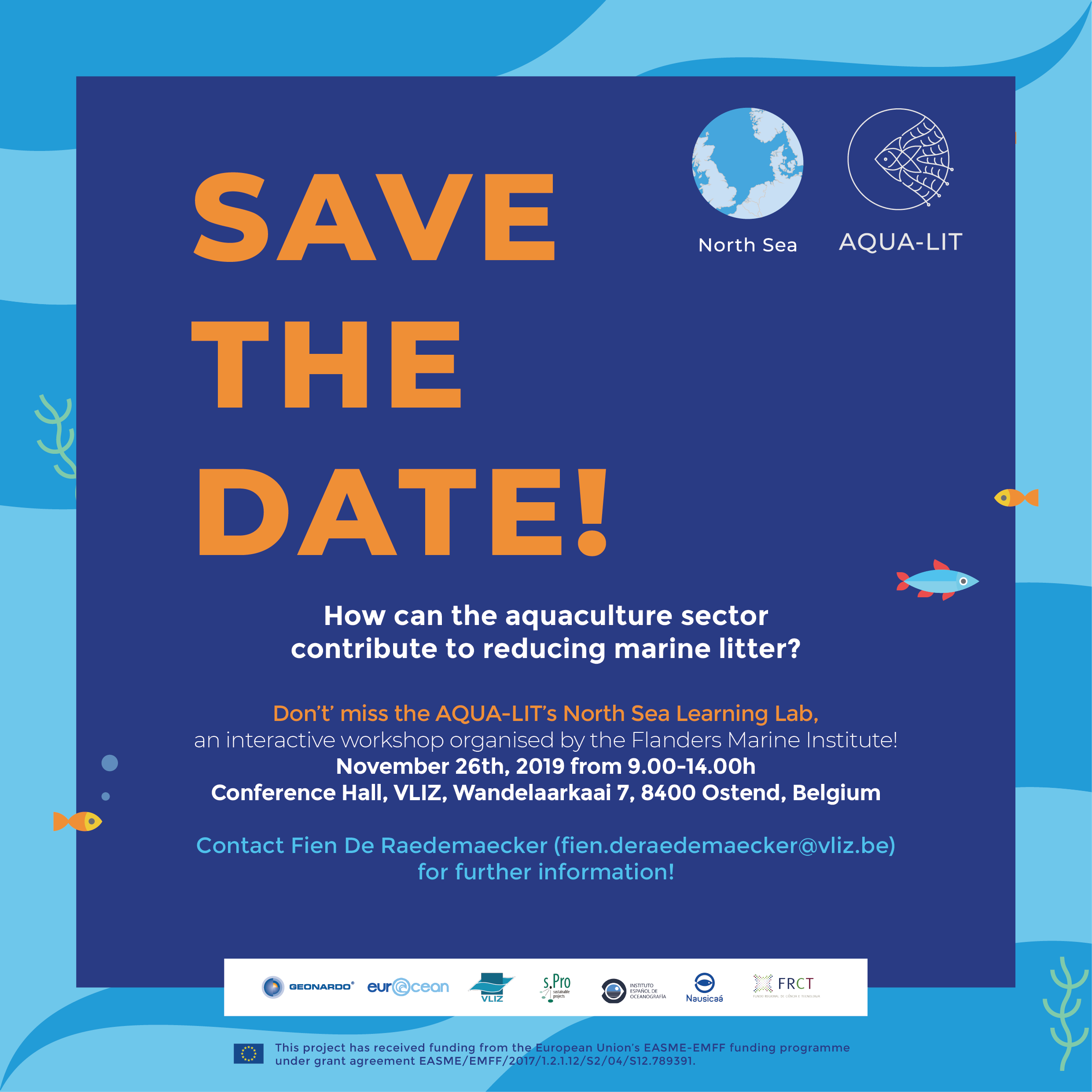
We are happy to invite you to the North Sea Learning Lab that will take place in Ostend, Belgium on November 26th, 2019.
Where? Conference Hall, VLIZ, Wandelaarkaai 7, 8400 Ostend, Belgium.
When? 9.00-14.00h
Those interested are invited to fill in the registration form: http://registration.vliz.be/node/861
The Learning Lab will have a highly interactive format encouraging participants to exchange their insights and opinions about the issue of litter in aquaculture and discuss possible solutions.
This workshop will be interdisciplinary in nature. Apart from those working directly in the aquaculture sector, this workshop is also well suited to those focused on topics of waste management, environmental protection and business development.
This will also be an opportunity to learn about the AQUA-LIT project results and hear from the experts in the field. If you wish to briefly present your company, business model, research, or idea related to issue of litter in aquaculture please contact fien.deraedemaecker@vliz.be with the brief description of your presentation proposal.